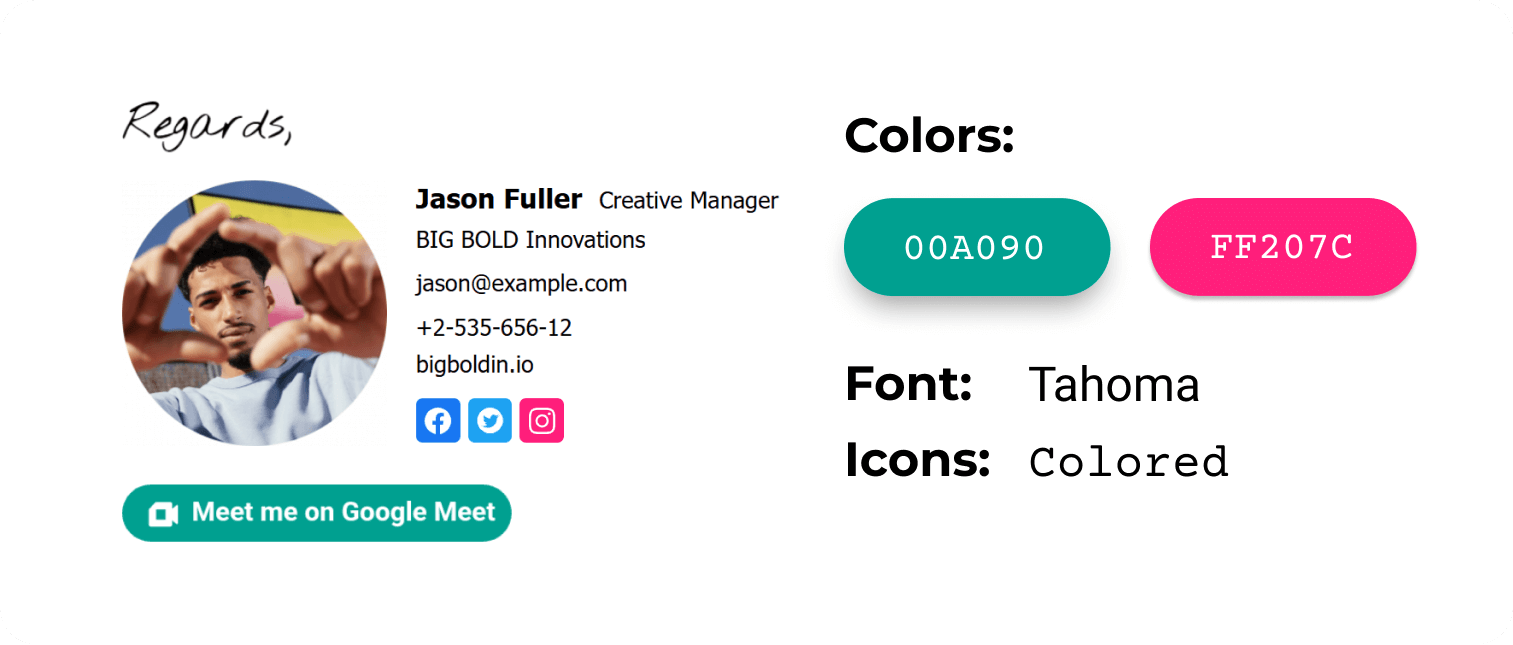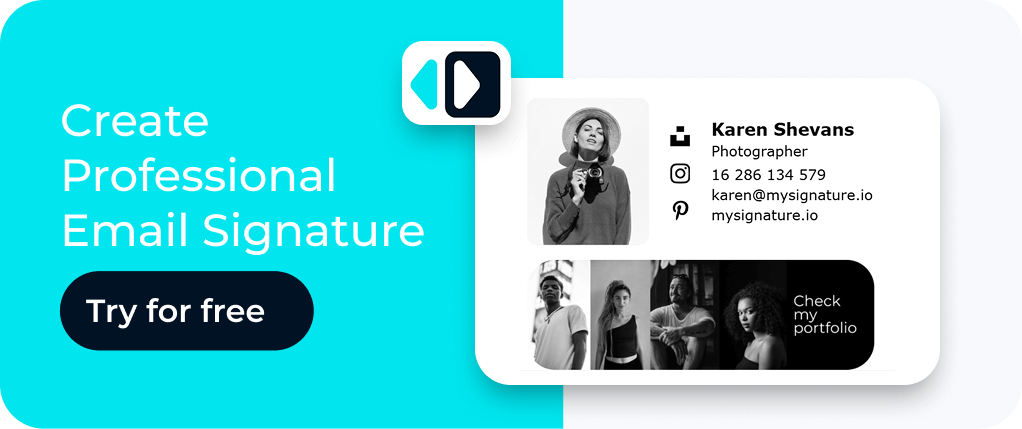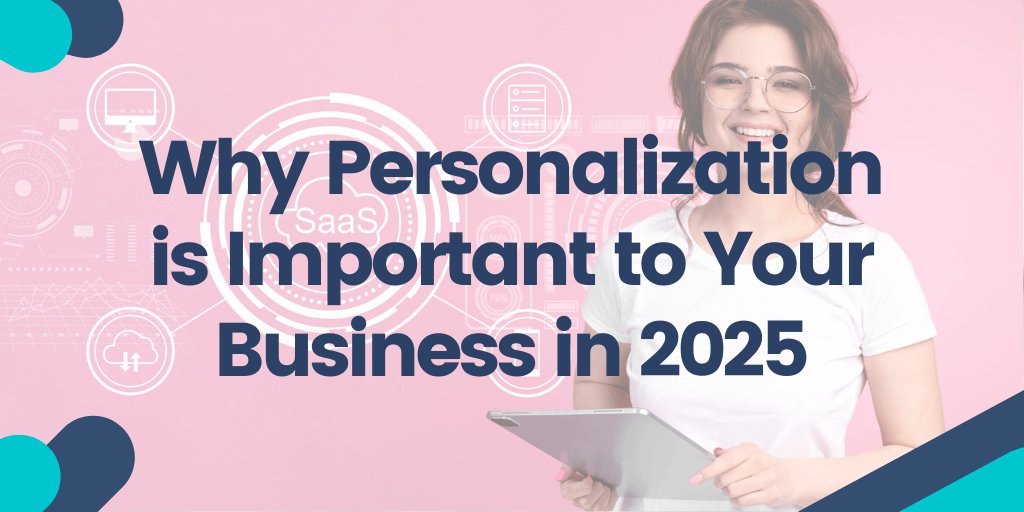The 20th century will be remembered for giving humanity a revolution in manufacturing. However, the 21st century starts the age of digital personalization, when customers increasingly choose goods and services tailored to their preferences and needs.
Should you and your business be concerned about that? From today’s hottest trends to future innovations, discover why marketing personalization is your key to business success in 2025!
Enhancing Customer Experience
The customer has always been the beacon for any business strategy, mission, vision, and values. In 2025, the customer is also the ultimate driver behind personalization efforts and has the final say on a business's performance in the market.
Furthermore, this year and beyond, excellent customer experience will continue to be a strong competitive advantage for any business that has gone online and digital. And a great customer experience demands personalization.
Why does personalization matter for customer experience? For several reasons:
- Increases Engagement & Satisfaction — the two key factors that determine whether customers are willing to buy products and services.
- Boosts Conversions & Revenue — offerings that meet customers’ needs increase conversions and drive revenue.
- Reduces Churn & Strengthens Loyalty — satisfied customers will be less likely to leave a brand and more likely to stay loyal to it in times of crisis.
You can start enhancing customer experiences through personalization already today by using machine learning tools (e.g., Dynamic Yield, Clerk.io, or Nosto) to analyze customer behavior and deliver dynamic personalization seamlessly across multiple distribution channels.
Boosting Conversion Rates
Of all business metrics, conversion rate consistently occupies one of the top positions. At the start of 2025, it continues to play a key role as businesses measure the success of their personalization efforts by how much they can improve customer conversions.

This is how marketing personalization drives higher conversions:
- Creates a Sense of Relevance — a well-crafted personalization strategy ensures that offerings appeal to buyers’ emotions by establishing a sense of care and driving engagement.
- Eliminates the Need for Middlemen — personalizing shopping with direct distribution channels enhances conversions by providing a more seamless customer experience. Some examples include in-house online stores, brand-specific apps, and social media shops.
- Improves Decision-Making — proactive personalization drives conversions by streamlining and essentially simplifying business decision-making (“If it meets my individual needs, then I don’t need to waste time searching for something else”).
For higher conversion rates, aim to segment your target audience to tailor your offerings and create personalized experiences using a fully customizable CRM that drives engagement and sales for distinct customer groups.
You can also use a spin the wheel popup to deliver personalized rewards (based on behavior or past purchases) and nudge visitors toward a faster decision. These groups can be based on audience behavior, demographics (age, gender, place of residence, etc.), or past purchases.
Personalized Email Marketing
Did you know? Email marketing is one of the most cost-efficient customer acquisition and retention strategies in e-commerce. While it may seem like a slow communication tool, speed is not always the decisive factor where personalization reigns.
The punch line is that the email format allows for a degree of digital personalization unattainable for other marketing channels.
Innovative email management tools like HubSpot Email Marketing, Salesforce Marketing Cloud, and ActiveCampaign perform on par or even better than their human counterparts. They crunch customer data, deliver AI-driven insights, and leverage automation to provide timely and highly relevant content.
The result? If done right, email marketing boosts customer engagement and improves acquisition and retention by helping to build lasting customer relationships.
The Role of Email Signatures in Personalization
Email signature is a vastly underestimated element in an email. People channel all their energy into crafting an impactful email body but forget to sign their creation properly.
That’s an unfortunate and costly fallacy. Why?
Like a conclusion in a book or scientific research, a signature is the last element in your email and the one the reader will remember most. With unprofessional or no signature, your email campaign will have that metaphorical fly in the ointment when the otherwise perfect product gets wasted because of a tiny flaw.

Here is how a professional email signature can support your email marketing:
- Builds Brand Identity — a unique signature will distinguish your emails from hundreds and thousands of others, solidifying your personal or corporate brand. Curious fact: 89.9% of users have one email signature, while some have up to 10!
- Sharpens Personalization — email signatures don’t have to be standardized and boring; on the contrary, they should reflect your identity, be creative, and leave a strong and positive impression on the recipient.
- Enhances Advertisement Opportunities — think of an email signature as a low-cost advertisement. Here, you can include your brand's name, personal signature, or even a link to your product.
There is no need to put yourself through the wringer to achieve all these benefits. You can improve your email signature just by using email signature management software. It will give you a choice of professional templates and plenty of customization options to fine-tune your pick to your style and liking.
AI-Powered Personalization in Email Campaigns
AI-powered email campaigns take personalization to the next level. Instead of the heavy manual work of cherry-picking recipients and crafting and sending targeted emails, an AI assistant can virtually do all this routine work for you. What is left for you is not much — to control, guide, and oversee.
Wonder how AI transforms email personalization? Here is how:
- Automated Database Creation and Segmentation — AI assistants scrape the internet (directories, websites, and social media pages) for contact information and compile email recipients' databases based on defined criteria.
- Dynamic Content Generation — AI assistants based on large language models effortlessly generate content drafts, which you can edit and adjust according to your expectations.
- Predictive Send Times & Behavior-Based Triggers — automated systems (e.g., Mailchimp, Klaviyo, Marketo Engage) disseminated targeted emails at the right time based on behavior-defined triggers. For instance, when a customer is about to leave your website or unsubscribe.
Looking for a cost-effective way to boost client engagement? Get started with white-label content marketing that will allow you to outsource all or parts of your email marketing content creation. Let an expert handle your email marketing to drive meaningful connections with top-tier clients.

AI-Driven Marketing Personalization
In all fairness, personalization was always present in trade and commerce, even in the 20th century. It didn’t come to be at once but slowly, in waves. However, what makes the recent wave of enhanced personalization special is the rapid rise of AI.
AI proved to be highly useful in business in many domains, but its effect on helping businesses meet individual customer needs is unlike anything we’ve seen before.
Hyper-Personalization in E-commerce
The term hyper-personalization denotes the ability of AI and AI-based applications and tools to go beyond basic customer segmentation and analysis.
The most astounding effects of hyper-personalization in e-commerce include:
- AI-Powered Product Recommendations — where humans struggle with simple numbers, AI toys with big data to make real-time product recommendations.
- Dynamic Website Personalization — AI boosts conversions and helps with customer acquisition by making website content more engaging. One tangible strategy for effectively connecting with prospects is to use AI to add native ads in your articles.
- Visual Search & Voice Optimization — modern e-commerce platforms work similarly to search engines like Google and Yahoo. They can personalize search results by analyzing how users interact with popular marketplaces like Amazon (through Alexa) and eBay.
These personalization trends in e-commerce increase Customer Lifetime Value (CLV) and optimize marketing spend. But above all, it boosts customer loyalty and retention.
Personalized Customer Support
Customer support has always been a cornerstone of success in business. It is traditionally time-consuming and expensive, requiring one to keep and train a lot of personnel (e.g., for call centers).

However, AI revolutionizes customer support by taking personalization to the next level while lowering service costs. Here is how:
- AI-Powered Chatbots & Virtual Assistants — a single AI-powered chatbot application can handle hundreds of customers and never get tired.
- Omnichannel Support — what’s even more amazing with AI is its ability to provide personalized assistance through multiple channels so that a customer gets seamless support in chat, social media apps, and email.
- Tailored Self-Service Options — although still in the testing phase, AI-driven knowledge bases, personalized FAQs, and guided troubleshooting adapt to user behavior patterns. Partnering with a solid AI development company makes scaling these features across platforms much smoother.
The road ahead in personalized customer support is bright and scary at the same time. The bright part we just discussed, but the scary part lies in AI’s power to predict behavior and subtly shape decisions.
The Bottom Line
In 2025, there are clear signs that personalization in business is only getting better, smarter, and more cost-efficient.
Primarily, this is due to the latest technological breakthroughs in computer sciences, particularly in AI. The cost of computing per US dollar is dropping exponentially while AI is becoming widespread, including e-commerce platforms, smartphones, customer support, and email marketing apps, to name a few.
So, there is no escape from this digital marketing personalization revolution. You either embrace it or become an outsider, losing customers and revenues.
With AI-driven hyper-personalization, businesses can engage customers faster and cheaper, target the highest-value customer segments, and increase conversions.
The question is — will you let AI work for you or against you?


